Peers around the world: sustainability, inclusivity and innovation at Linköping Science Park
/Lena_Miranda__CEO_of_Link_ping_Science_Park.jpg)
In this month's "peers around the world" feature, where we interview leaders of global innovation spaces, we're in conversation with Lena Miranda, CEO of Linköping Science Park (Sweden) and IASP International President, as she talks about sustainability, equality and inclusivity as pillars for a better society, as well as major innovations that made Linköping a world class innovation hotspot.
With 2023 coming to a close we are looking back at a year where sustainability and the need for innovative solutions have been top of the agenda at IASP gatherings in Iceland, Luxembourg and peer meetings around the world. How does this tie into the day-to-day activities at Linköping Science Park?
For any innovation community to be relevant today, sustainability should be the top priority. The societal challenges the world is facing need countries to change their whole systems. Simultaneously, these societal shifts create an ever-increasing global need for innovation, innovative companies, and the revitalization of entire value chains.
Within Linköping Science Park, we continuously strive to translate these challenges into tangible activities. Collaborating with our region and municipality, we design projects to address agreed-upon societal challenges, encompassing transforming industries, food supply, energy systems, and the future of health and welfare. We engage in broad collaborative efforts, seeking to broaden perspectives from technical solutions to encompass behaviours, regulations, infrastructure, and production processes believing our contemporary risks require carefully crafted innovations.
How we collaborate, organize workflows within all organizations, build teams across organizational and disciplinary boundaries, and involve the right stakeholders is crucial, and it’s our firm belief that STPs play an important role in driving these transformation activities. In our Science Park team, we’ve worked on designing guidelines to help us work more sustainably in all our different activities and projects within our operations.
And how do you see the sustainability effort at a global level, looking from Linköping to Sweden and to the world? What takeaways have you got from international peers and are we getting better at collaborating to drive real change?
To be frank, I strongly believe we need to do much more—considerably more. While I acknowledge it's not an easy task, let's reflect on what we accomplished during the pandemic, particularly in swiftly developing and adopting new vaccines. We must harness that same capability and determination to combat climate change.
Numerous peers and counterparts are already making significant strides, and now is the time to forge connections, share knowledge, and scale up these efforts. Many technical innovations crucial to addressing these challenges already exist, yet we struggle to implement them on a larger scale. Achieving scalability demands a transformation of behaviours, legislation, incentive programs, and more.
For instance, the SDG Model Zones launched by the Global Alliance of Economic Zones is a great initiative to create visibility among peers. Also, the Swedish initiative Impact Startup Map ought to be elevated to a global scale, recognizing and showcasing all startups worldwide that offer solutions to reduce emissions and introduce innovative approaches to support climate change. Global initiatives can serve as a catalyst for widespread change and inspire collaborative action on a global scale.
At the IASP world conference in Luxembourg you connected the megatrends to the history of your park and wider innovation community. What are the “made in Linköping” innovations that have turned the park into a world class innovation hotspot?
Linköping Science Park, formerly known as Mjärdevi Science Park, holds a great legacy of innovation, which dates back to the inception of mobile communication technologies, from the pioneering days of GSM to the current frontier of 6G. Ericsson, made the first ever GSM call out of Mjärdevi, marking a pivotal moment in telecommunications.
Moreover, our park has been at the forefront of imaging advancements. In 1984, Sectra accomplished a groundbreaking feat by transmitting the first image across the Atlantic via modem. Remarkably, a picture taken at the Olympic Games in LA was published in a Swedish newspaper the following day. Building upon this pioneering spirit, Linköping witnessed the commercialization of technologies integral to streaming services like Netflix and HBO. Kreatel, a company based in our region, introduced the world's first IPTV set-top box in the late 1990s, enabling the streaming capabilities that are now commonplace. This unwavering commitment to innovation remains at the core of activities within Linköping Science Park, driving us forward into new frontiers of technological advancement driving towards energy efficiency, new materials and life science innovations.
And in the end, it’s all about the people and how we evolve as an innovative community. We need to stay curious, eager to learn and brave enough to try out new solutions. That is how we will stay in the forefront of groundbreaking innovation.
“Brilliant Mentors of the Future”, a reverse mentorship programme connecting business leaders with university students, was one of your 2023 highlights as Linköping Science Park won an IASP Inspiring Solutions award. How does Linköping Science Park care for future generations and talent?
This is a heartfelt concern for us. We strive for equality and inclusivity in all aspects, understanding that involving the next generation in shaping our future society is crucial for success. We have failed to properly care for our planet, and now it's imperative that we take action. We are the last generation capable of making a significant impact and redirecting our trajectory. However, achieving this requires bridging generational divides. We must learn from each other, actively listen, and collaborate to pave the way forward.
You have many more programmes designed to help your local community. Tell us a bit more about your focus on digital transformation and programmes such as “Digital competence - lifelong learning”, designed to make companies future-proof.
As you mentioned, our efforts to enhance digitalization encompass a wide range of activities. We firmly believe in addressing a broad spectrum, supporting not only companies at the forefront of new technology but also those about to embark on their digital journey. Additionally, we prioritize strengthening digital skills across the population—focusing on both reskilling and upskilling—while striving to bridge the gap of digital exclusion.
In all our initiatives, we maintain a steadfast commitment to the relevance of security. Whether in infrastructure projects, IT systems, product, or service development, or in empowering individuals, we place equal emphasis on fortifying digital resilience. Our goal is to mitigate the risks of hacking attacks and disinformation, ensuring a secure digital landscape for all.
Our extensive services include cluster initiatives, educational programs, test and demo processes as well as seminars and events.
We know you are a strong advocate for cooperative approaches. Do you have any partnerships or initiatives where you contribute to growth-oriented transformation that can inspire peers?
I would like to highlight our startup platform, IndX, where we collaborate with four global industrial giants in our region: Saab, Toyota Material Handling Europe, Väderstad, and Husqvarna. Our ambition is to connect them with innovative startups from around the world. This initiative not only introduces us to inspiring startup entrepreneurs globally, enriching our community with fresh ideas and knowledge, but also yields significant benefits from the collaboration among these companies.
Although these industry giants operate in different markets, they share the need to adopt similar technologies and transition their workforce into the digital era. There is immense value in their mutual learning from one another. I strongly believe that this program contributes to regional growth and enhances competitiveness in multiple ways.
One of our flagship programs is Swedish Scaleups, where over the past decade, we have developed initiatives aimed at fostering the growth of our innovative scale-up ventures in the greater Central East Sweden Region. This program offers comprehensive business counselling, covering various intricate aspects. It delves not only into strategies for business and organizational growth but also emphasizes integrating sustainability perspectives into business models, ensuring secure digitalization, and navigating international growth in a geopolitically complex market, among other facets.
Continuous learning is integral to the program, recognizing the ever-changing market landscape as we progress into the future.
With an eventful 2023, let’s wrap up by looking ahead: in 2024 Linköping Science Park turns 40 – a unique opportunity to celebrate ‘past, present and future’. Any closing remarks you can add to these three stages of your park?
A prominent poet from our region, Tage Danielsson, once said, 'You cannot look into the future without recognizing the past – then you must watch out!' I believe he makes a valid point. There is much to learn from history as we navigate towards the future. This is a collective effort that we, as a community, need to undertake together.
It's essential that we collectively shape positive visions of the future and inspire each other—especially the younger generation. We must begin envisioning a future where we transcend crises, conflicts, and wars, focusing instead on healing ourselves and our planet.
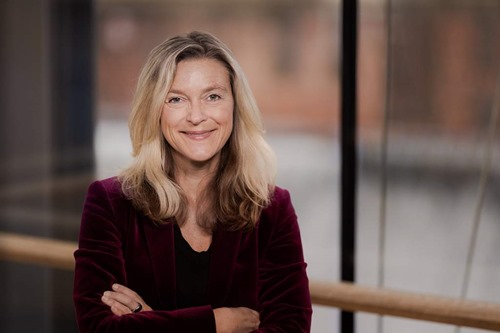
.jpg)
.jpg)
.jpg)

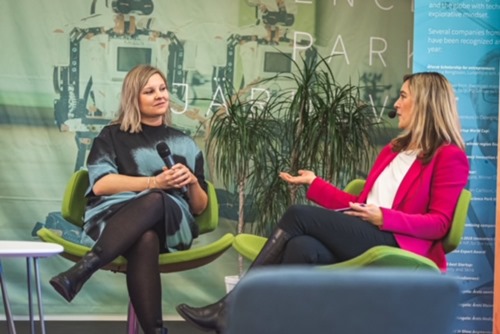
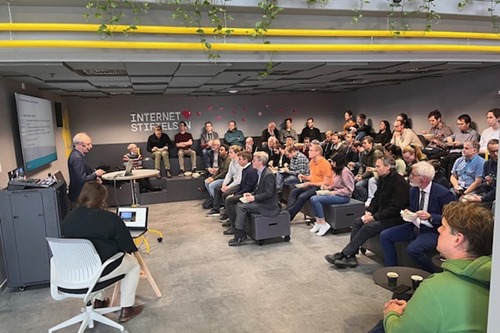
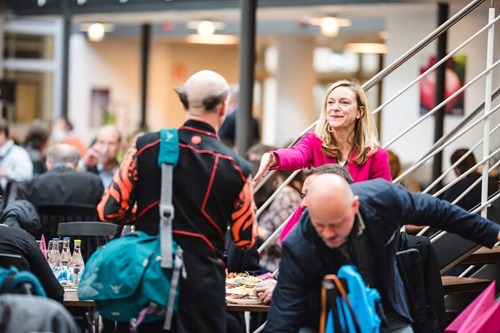
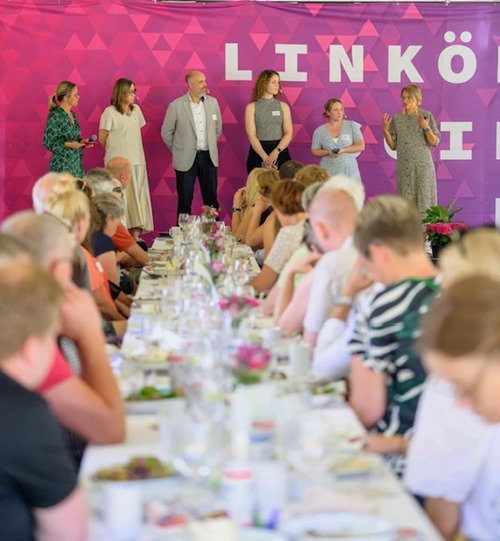
/)

/canvascolor(0xffffffff)/Adlershof_rgb.jpg)
/canvascolor(0xffffffff)/MemberLogo-5658-6090.jpg)
/canvascolor(0xffffffff)/MemberLogo-5735-6186.jpg)
/canvascolor(0xffffffff)/2023_06_19_China_Tuspark_Ningbo_Logo.png)
/canvascolor(0xffffffff)/Logo_biopark_200x200_3.jpg)
/canvascolor(0xffffffff)/Clipboard-2.jpg)
/canvascolor(0xffffffff)/2021_09_20_Thailand_STP_Chiang_Mai_University.jpg)
/canvascolor(0xffffffff)/2023_10_17_China_Weiguang_Life_Science.png)
/canvascolor(0xffffffff)/2024_12_10_Canada_Entreprendre_Sherbrooke_Logo.png)
/canvascolor(0xffffffff)/logo_19.png)
/canvascolor(0xffffffff)/Yothi_Medical_Innovation_Disctrict.jpg)
/canvascolor(0xffffffff)/2025_03_04_Germany_Ostfalen.png)
/canvascolor(0xffffffff)/Korea_Innovation_Foundation.png)
/canvascolor(0xffffffff)/2020_05_07_Brazil_Porto_Digital.jpg)
/canvascolor(0xffffffff)/logo_2_(para_rodape_)_1.png)
/canvascolor(0xffffffff)/MemberLogo-87901-361401.png)
/canvascolor(0xffffffff)/Teknopark_vekt_rel_logo_page-0001_1.jpg)
/canvascolor(0xffffffff)/buildings2_7.png)
/canvascolor(0xffffffff)/MemberLogo-5751-6208.jpg)
/canvascolor(0xffffffff)/2018_03_30_Canada_Technoparc_Montreal.png)
/canvascolor(0xffffffff)/MemberLogo-58801-6311.png)
/canvascolor(0xffffffff)/WhatsApp_Image_2024-03-11_at_10.37.06.jpg)
/canvascolor(0xffffffff)/gcid-logo_logo-colour_for_web_with_20__2.jpg)
/canvascolor(0xffffffff)/Captura_de_tela_2025-03-06_122825.png)
/canvascolor(0xffffffff)/WhatsApp_Image_2023-08-01_at_14.01.59_5.jpg)
